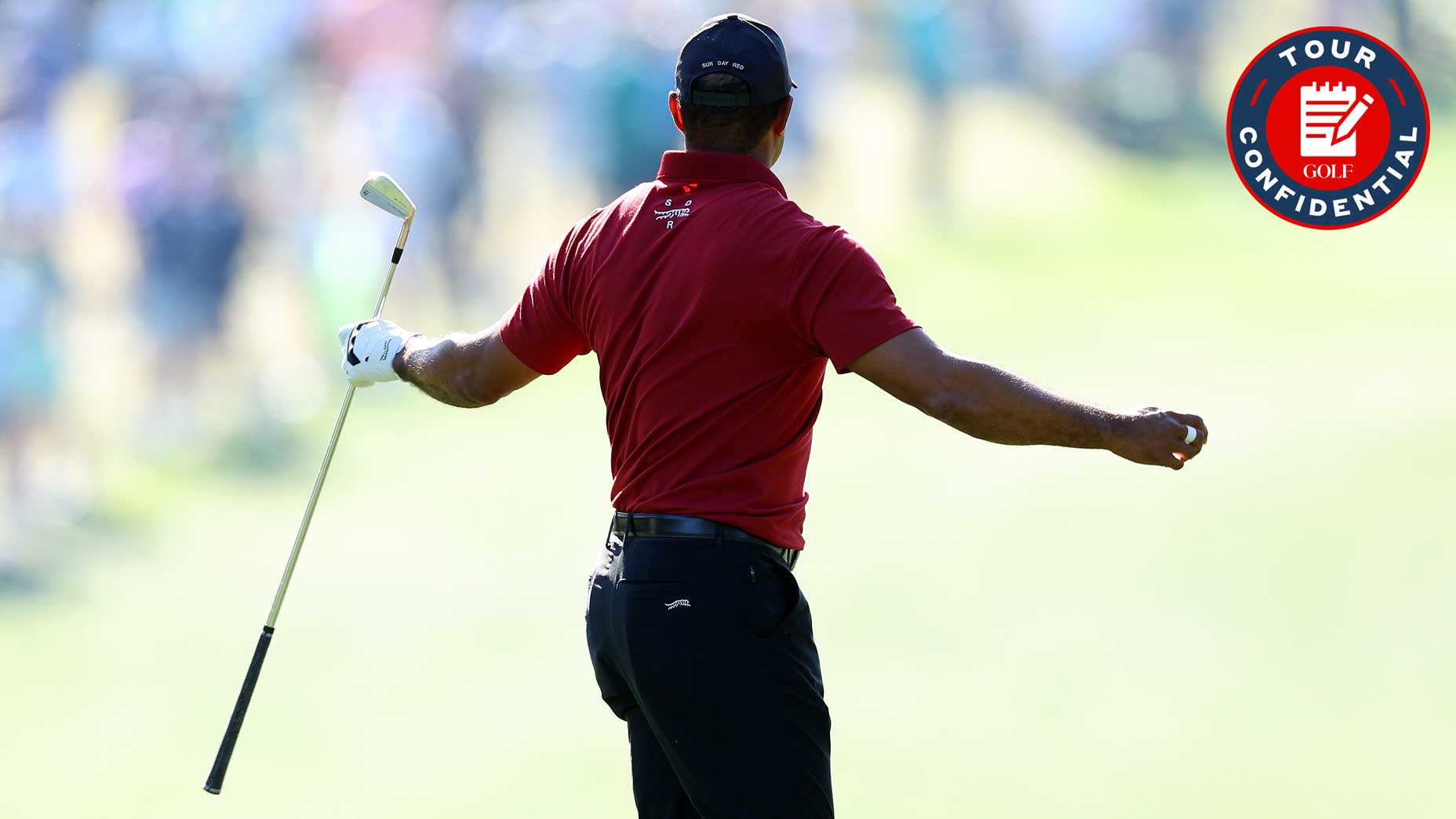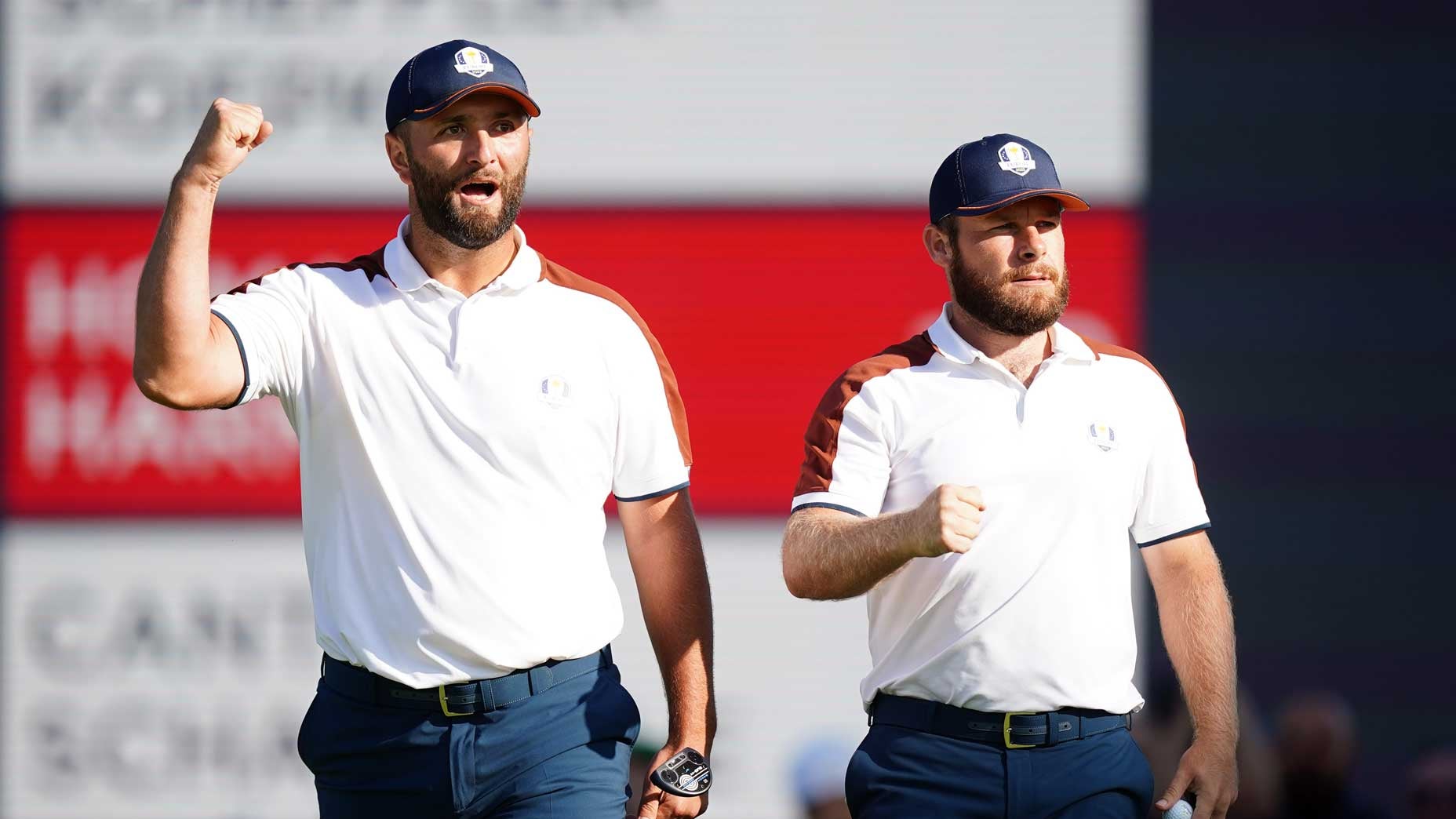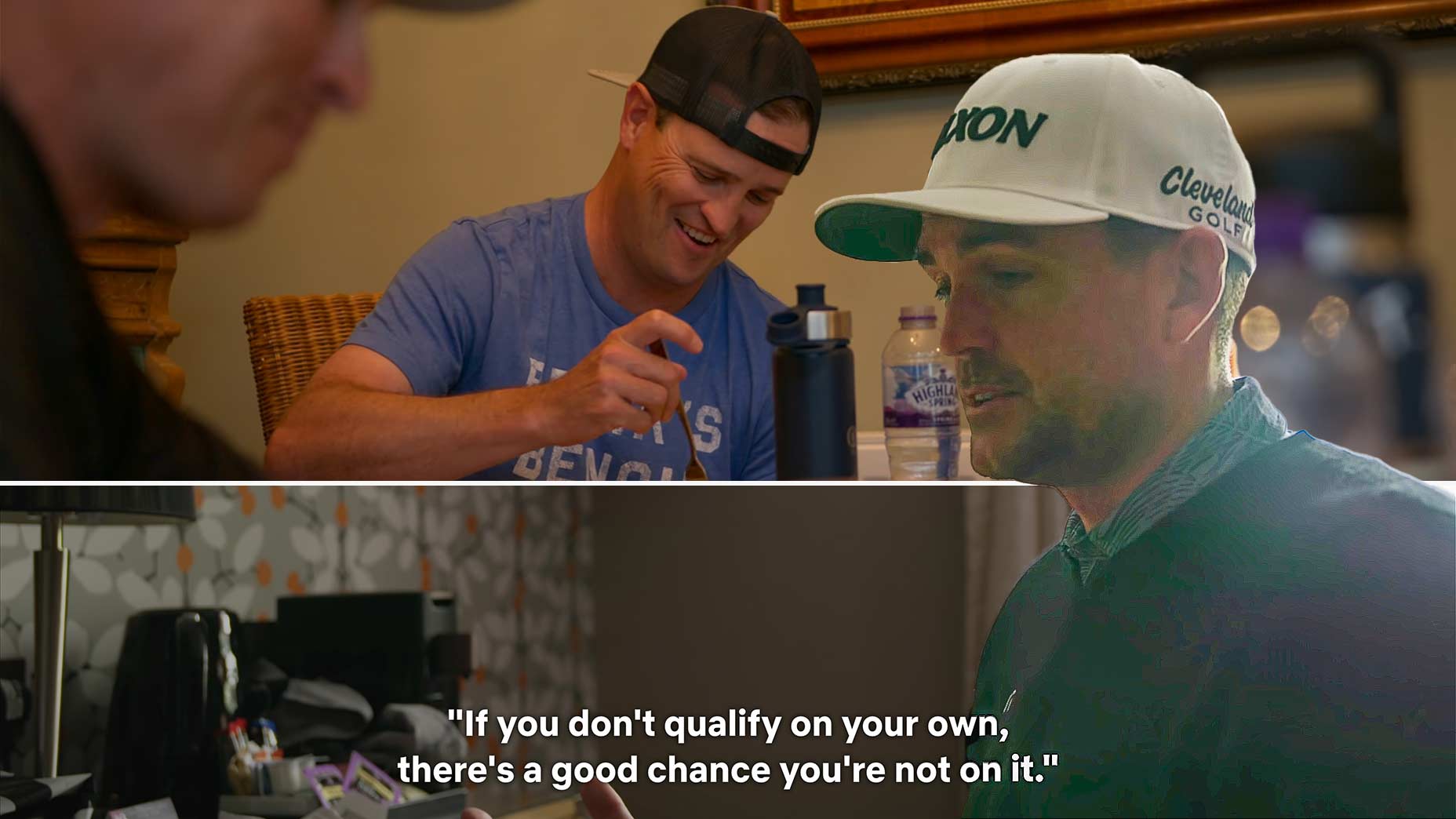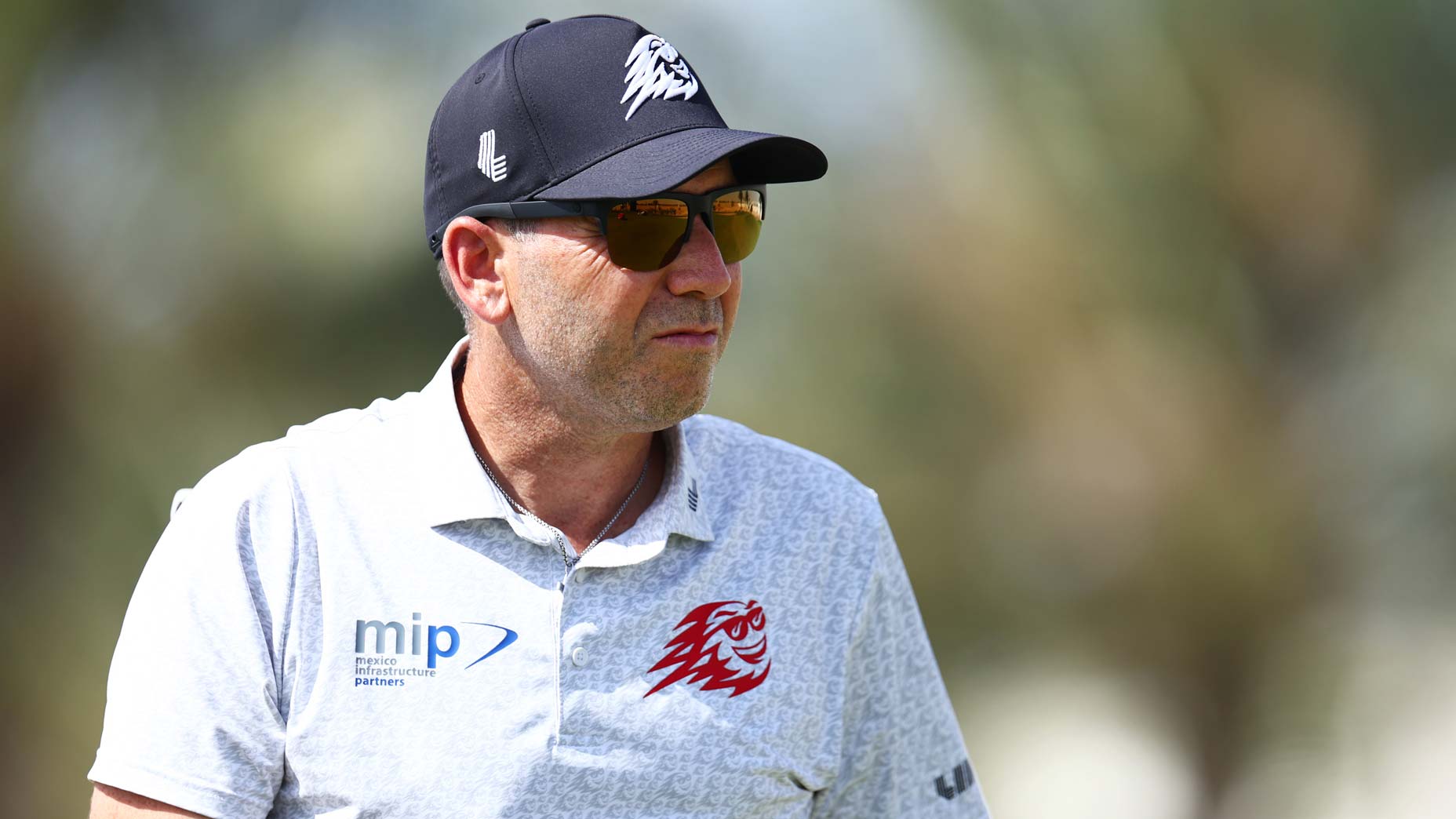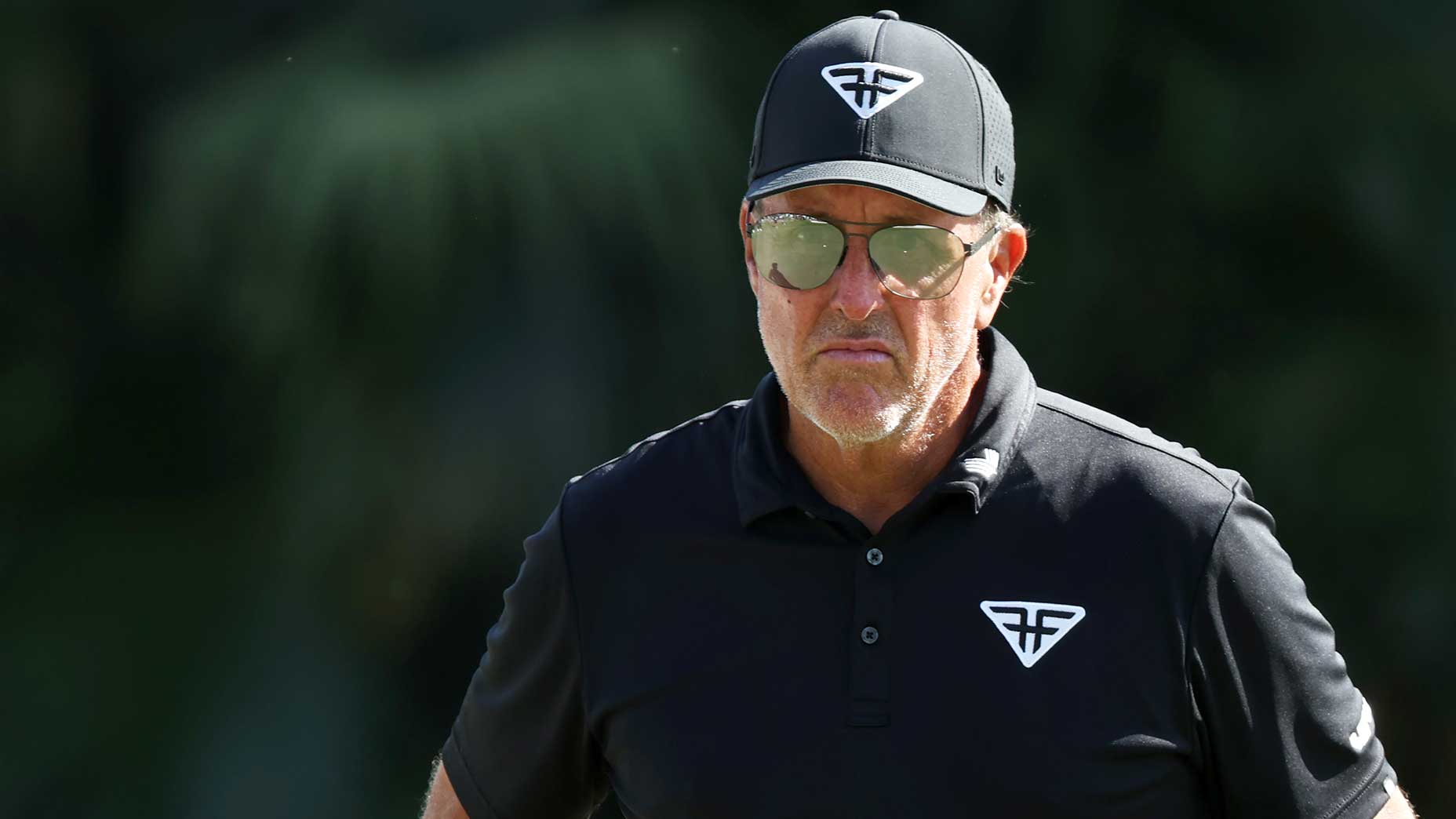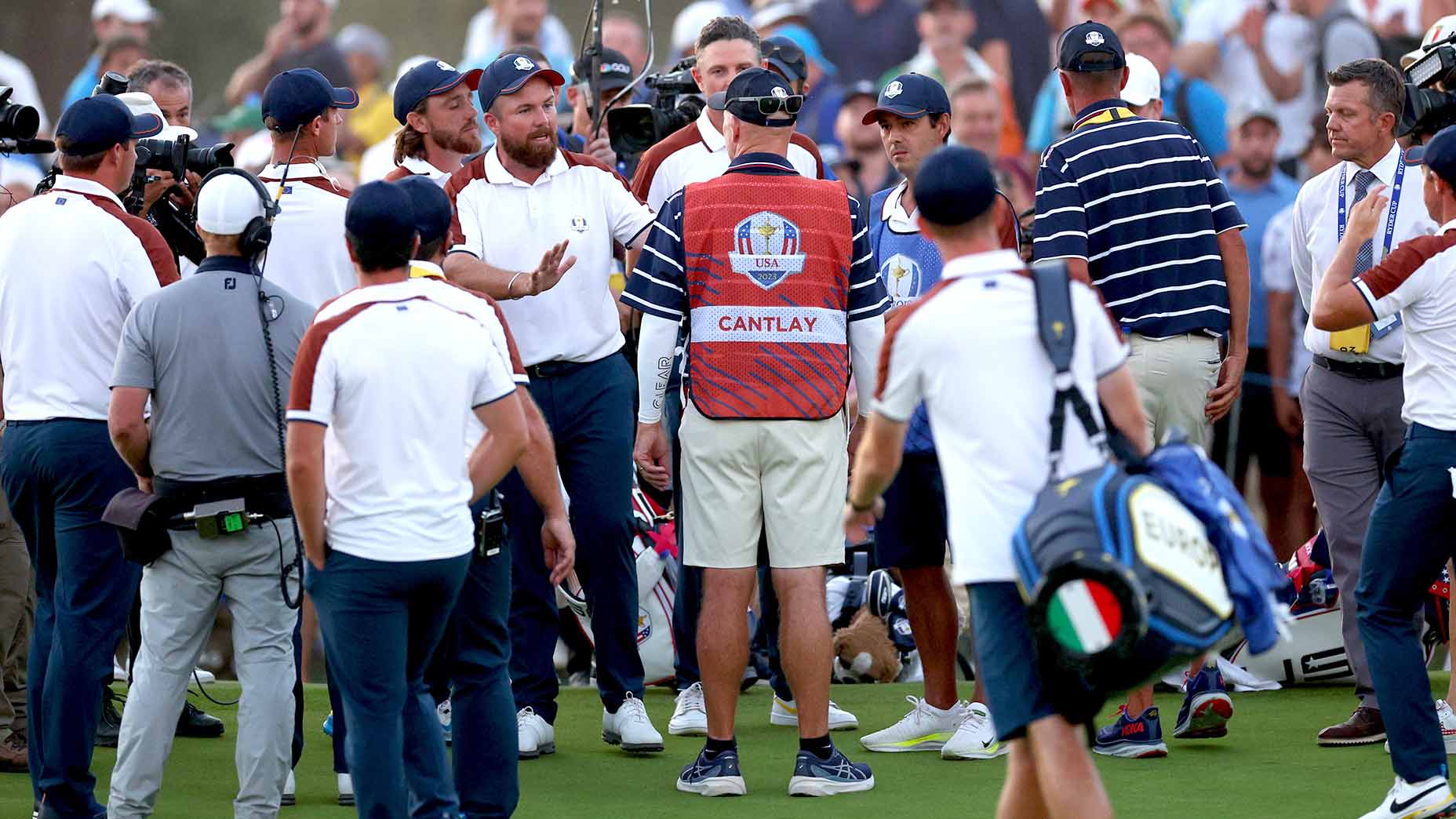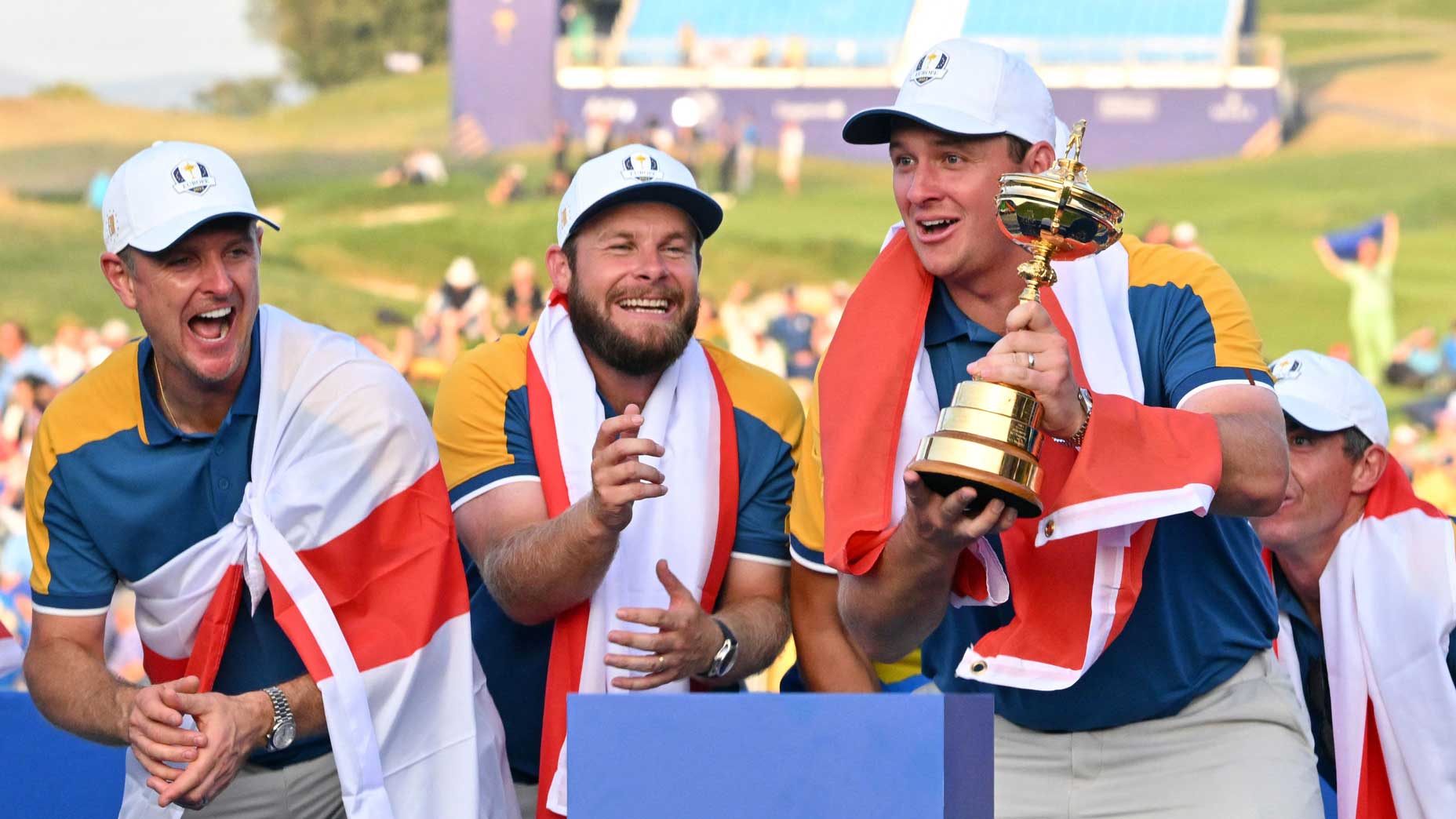In Ryder Cup Friday disaster, the U.S. learned something concerning
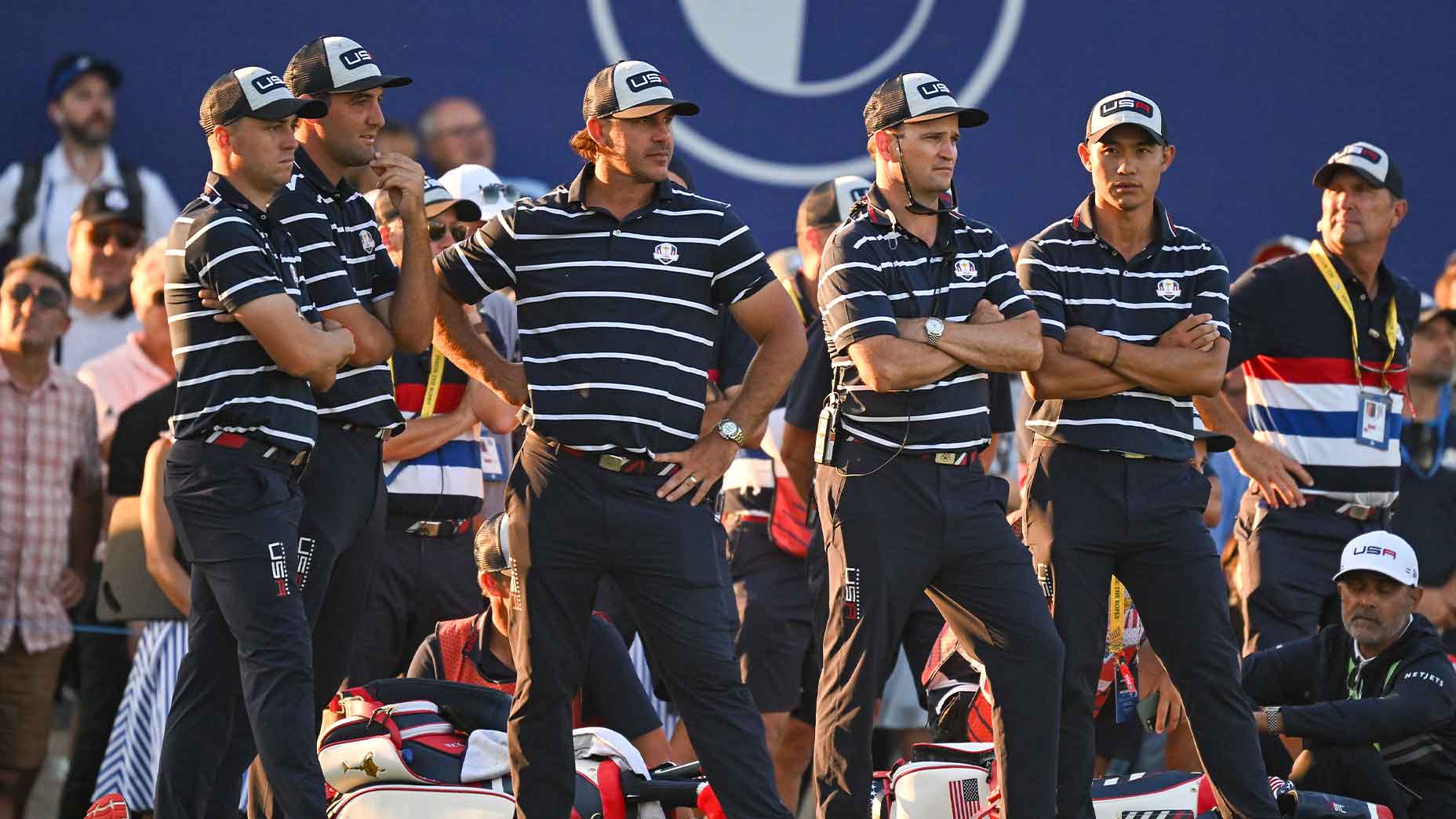
Brooks Koepka and Scottie Scheffler had no answers for Jon Rahm on Ryder Cup Friday.
Getty Images
ROME — Nobody could hide from the truth on Friday, not even the families: The United States was lifeless at the Ryder Cup.
One U.S. team dad punctuated this point audibly when he stepped off the 9th green shortly after his son rolled in a birdie putt for a meaningful win. He couldn’t believe his eyes, he said, there hadn’t been so much as a cheer from the U.S. side.
“Jesus, this is so bad,” he said. “We just made a birdie and nobody even noticed.”
That was how Friday went for the Americans, who were undressed before the golf world in a stunning 6.5-1.5 opening day at this 44th Ryder Cup. Now we try to find blame for the performance that was — and may still be — at Marco Simone Golf Club. Blame that apparently might have something to do with … congestion?
“We’ve got some congestion and some signs of things that are unfortunate,” U.S. captain Zach Johnson admitted on Friday evening. “I’m being honest, it kinda has spread through my team. I’m just grateful we have a team doctor.”
For a while Friday, it was tempting to believe that American issues at the Ryder Cup ended with Johnson himself.
Johnson had earned the criticism. He was the chief architect of a disastrous start to the Cup for the Americans, aligning some of the stranger foursomes pairings we’ve seen in recent Ryder Cup history. For the first several hours on Friday, he watched hopelessly as that octette of largely inexperienced Ryder Cuppers were swallowed up whole by a dominant group of Europeans, with only one of the Cup’s first four matches extending beyond the 16th hole. The Americans didn’t lead for a single hole, in a single match, until about an hour into Friday afternoon’s fourball pairings.
To be fair, alternate shot is a strange format. But to be fair, Johnson had more or less spotted the Euros three points by the time the first set of matches reached the fifth hole. That’s bad captaining, no two ways about it.
But then, almost seconds after Rory McIlroy and Tommy Fleetwood closed out Xander Schauffele and Patrick Cantlay to end a historic first session sweep, the fourball pairings were released. As it turned out, Johnson had realized the error in his ways. He lit his gameplan on fire, and with the U.S. needing a spark, he managed to find one, pairing eight of the United States’ most fearsome competitors together, playing style be damned, in an effort to rapidly right the ship.
The first — and brightest — move was the return of Justin Thomas and Jordan Spieth, a heart-and-soul pairing who’d inexplicably sat earlier in the day. Then came a more reasonable all-rookie pairing: Max Homa and Wyndham Clark, two high-energy players who promised some serious wattage. Then, last off: Collin Morikawa and Xander Schauffele — two quiet intensity types with an affinity for firing at pins.
But Johnson’s biggest decision was his second pairing. The Americans were suddenly in desperate need of points, and so Johnson emptied the clip on the closest he could find to a sure thing. Brooks Koepka, the U.S.’s unquestioned alpha, had been paired with Scottie Scheffler, the U.S.’s unquestioned best player. Johnson had all but stated his plan: we’re going to beat you here, and hope we win a few of the others.
Then Jon Rahm happened.
You have no doubt seen by now the highlight that could very well prove the decisive moment of this entire tournament, when Rahm jarred a 20-footer for eagle on the 18th hole to stun the Americans into a halve. But you really should have seen some of the highlights that came before it.
Scheffler and Koepka would have beaten any two golfers in the world not named Rahm today, who chipped in twice, rolled the length of the Spanish Steps in putts, and played like a scab scraping against the inside of Johnson’s jeans all day.
Scheffler and Koepka nearly beat Rahm anyway, with Scheffler’s jaw-dropping ball-striking giving the U.S. a defining moment and a late lead with a birdie on No. 17. Rahm simply wouldn’t go away.
“We birdied 14 through 18,” Koepka summarized after, dejected. “It was nice to watch him play. There’s nothing you can do.”
It was the sort of bare-knuckle brawl the Americans needed to win to keep their Cup hopes alive. And the Americans lost. So what does it mean?
“Today’s done, and there’s more opportunity out there,” Johnson said Friday. “Twenty-eight percent-ish of a tournament is done, so we’ve got 72 percent left. That is a lot of opportunity, that makes for an opportunity to go out and show off and show the true character of this team, which I’ve been very proud of since the very beginning.”
Yes, there is opportunity, but Friday’s embarrassing performance also means the U.S. should be deeply troubled heading into Sunday’s second day of play, where the Europeans are already looking for signs of a death rattle. It means Johnson should be very careful about the way he manages the rest of the matches from here on out, because any mistakes could be the one that costs him the Cup. (In a positive sign, Johnson left his pairings largely untouched from Friday’s afternoon session.) Mostly though, it means the Americans learned something on Ryder Cup Friday that not many people thought was possible heading into the week.
Right now, when the two teams are at their best, the Europeans are better.
The Americans might not like to hear that, but the scoreboard currently says it all. And if you wanted any further proof of that on Friday in Rome, you didn’t need to watch the Rahm/Scheffler/Koepka deathmatch.
You needed only a pair of ears.


